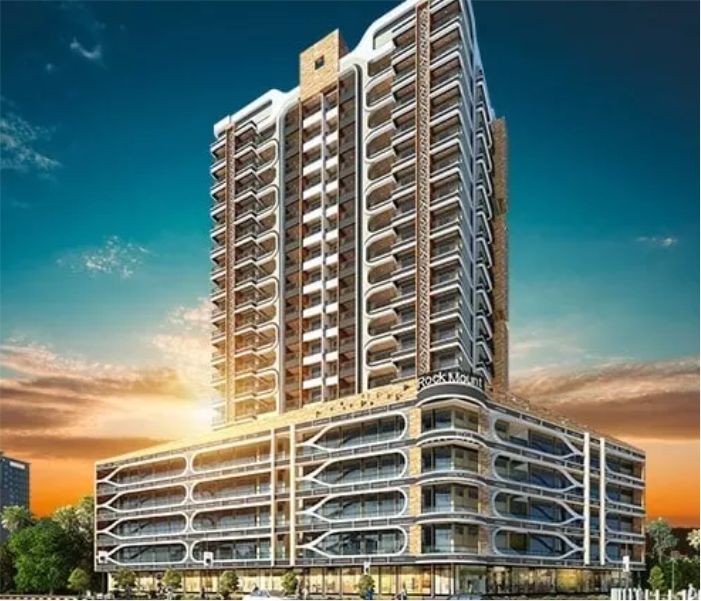
Understanding GST Tax on Purchasing Residential Property in Kalyan
The Goods and Services Tax (GST) has transformed the tax landscape in India, significantly impacting various sectors, including real estate. For homebuyers in Kalyan, a rapidly developing area in the Mumbai Metropolitan Region, understanding the implications of GST on residential property purchases is crucial. This blog delves into how GST applies to real estate transactions, providing insights for potential buyers in 2024.
1. What is GST?
Goods and Services Tax (GST) is a single indirect tax levied on the supply of goods and services across India. Introduced in July 2017, GST is designed to simplify the tax structure, eliminate the cascading effect, and streamline the process of tax collection. The introduction of GST significantly influenced how taxes are calculated on different goods and services across various sectors, including real estate.
2. GST on Residential Property
In Kalyan, as in the rest of India, GST is applicable primarily in the context of under-construction residential properties. Here’s how it works:
- Under-Construction Properties: When purchasing an under-construction flat or apartment, the GST is levied on the construction cost, reducing the burden of various indirect taxes that were previously applicable. As of 2024, the GST on the sale of under-construction residential properties is set at 5% for non-affordable housing and 1% for affordable housing. Affordable housing is defined based on specific criteria, including price and size.
- Completed Properties: It’s essential to note that completed or ready-to-move-in properties do not attract GST, since they are considered a sale of immovable property. Hence, homebuyers purchasing a completed apartment in Kalyan will only need to pay stamp duty and registration charges, which are separate from GST.
3. Definition of Affordable Housing
The definition of affordable housing varies according to government regulations, which set specific criteria for property classification. As per current norms, a residential unit is considered affordable if it meets the following criteria:
- The value of the unit is up to ₹45 lakhs.
- The carpet area of the unit does not exceed 60 square meters (645 square feet) in metropolitan areas or 90 square meters (968 square feet) in non-metropolitan areas.
Understanding these criteria is essential for homebuyers looking to benefit from the reduced GST rates, as it significantly affects the overall cost of acquiring new residential properties.
4. How is GST Calculated?
To illustrate how GST is calculated on residential property, let’s consider an example:
- Suppose you are purchasing an under-construction apartment in Kalyan for ₹80 lakhs. If the apartment does not fall under the affordable housing category, GST applied would be calculated as follows:
- GST Rate: 5%
- GST Calculation: 5% of ₹80,00,000 = ₹4,00,000
This means, in addition to the purchase price, you would need to budget an additional ₹4,00,000 for GST costs.
5. Input Tax Credit (ITC)
One of the benefits of GST for homebuyers is the provision for Input Tax Credit (ITC). This mechanism allows developers to claim credit for taxes paid on inputs used in the construction of the property. While individual homebuyers typically do not directly benefit from ITC, it is essential as it can indirectly affect the pricing of properties. When developers can claim ITC, it reduces their overall cost, which may translate into lower prices for buyers.
6. Impact of GST Changes on Future Investments
As the real estate market in Kalyan continues to evolve, updates to GST provisions can influence pricing and buyer behavior. Buyers are advised to stay updated on any policy changes regarding GST rates and definitions of affordable housing, as these factors may affect their investment decisions.
Additionally, fluctuations in the real estate market caused by economic conditions can also impact property prices in Kalyan. Understanding how GST plays into the greater economic picture can help investors make informed decisions.
7. Conclusion
GST plays a significant role in property transactions, particularly for under-construction residential properties in Kalyan. With its implementation, buyers must carefully consider the tax implications when budgeting for a property purchase.
Understanding the GST rate, the difference between under-construction and ready-to-move properties, and the definition of affordable housing will enable prospective buyers to navigate the home-buying process effectively.
As Kalyan continues to develop as a prominent residential destination, staying informed about GST and its impact on property investments is vital for making sound financial decisions. By understanding these tax obligations, homebuyers can ensure transparency and make confident choices as they seek to secure their dream homes in this thriving suburban hub.



Recent comments(0)